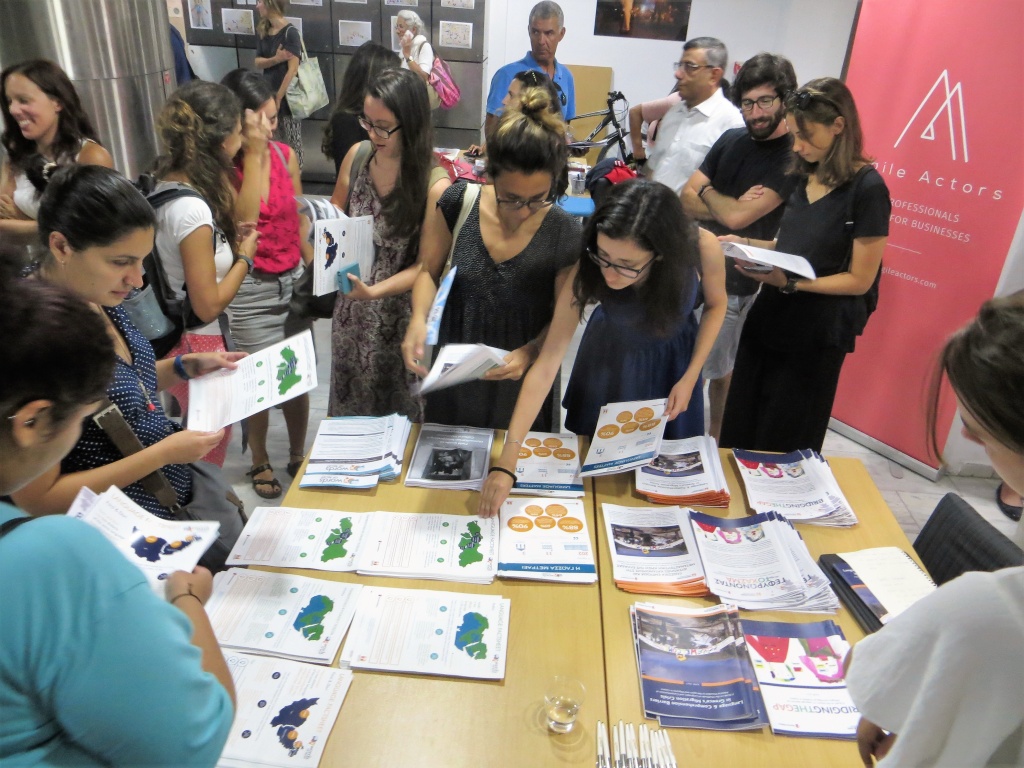Translators without Borders releases findings of language studies with refugees in Greece
Studies provide insights into impact language has on refugees’ daily lives

DANBURY, CT USA – 25 July 2017. Translators without Borders (TWB) has released findings of two language studies completed with refugees in Greece in spring 2017, with support from Save the Children. The studies, Language & Comprehension Barriers in Greece’s Migration Crisis, and Bridging the Gap: A Study on the Impact of Language Barriers on Refugee and Migrant Children in Greece, provide insights into levels of comprehension among refugees, how they prefer to receive information, and the impact of a multilingual environment on the lives of children.
Not surprisingly, only one in ten of those who took part in the comprehension study said they could understand or read English. Eighty-eight percent indicated a strong preference for information to be provided in their mother tongue. Yet, while many said they preferred to have information in writing – for example so they can refer to it over time – when written information is provided in the mother tongue, it is often not understood. In a simple comprehension test, 56 percent of participants could not answer basic questions on written information even when it was provided in their own language.
“While almost everyone we tested said they could understand written information in their mother tongue, fewer than half actually did,” said Nada Ghandour-Demiri, TWB Senior Project Officer Research, who oversaw both studies. “We believe literacy is much less prevalent than expected, and content is often not translated or simplified in a way that resonates with the reader.”
The socio-linguistic study with children used a research game and interviews with children whose mother tongues include Arabic, Kurmanji, Sorani, Farsi and Dari. Interestingly, the study found that while language can be a barrier for the children, especially at school and with doctors and nurses, it also is an asset that allows them to communicate with friends and aid workers speaking many different tongues. The children and their helpers ‘translanguage’ throughout the day, using various words they have picked up from many different languages.
“With the children we saw how deep language barriers go, especially how they impact people trying to help children, such as teachers and medical professionals,” said Ghandour-Demiri. “It is important that we celebrate their ability to pick up new languages, but also that we increase support in their mother tongues, especially at schools.”
TWB is using the studies to refine its approach to language, in working both with refugees in Europe and with affected people in humanitarian emergencies around the world. The organization is encouraging greater gathering of language data and testing of content among its partners and an emphasis on simplified content as well as audio information. The gap in strong interpreting skills is also an area the organization is addressing. Free resource materials and new services are being rolled out at the moment.
The methodologies for both studies, together with a more in-depth review of findings and recommendations, are set out in full-length reports and executive summaries. Current resources, including language fact sheets, an interpreter field guide and links to glossary apps for Arabic, Farsi and Kurmanji, can also be found on this page.
About Translators without Borders
Translators without Borders (TWB) envisions a world where knowledge knows no language barriers. The US-based non-profit provides people access to vital knowledge in their language by connecting non-profit organizations with a professional community of translators, building local language translation capacity, and raising awareness of language barriers. Originally founded in 1993 in France (as Traducteurs sans Frontières), TWB translates millions of words of life-saving and life-changing information a year. In 2013, TWB created the first-ever crisis relief translation service, Words of Relief, which has responded to crises every year since. The organization started responding to the European refugee crisis in 2015, providing much-expanded language services, including rapid translations for partners working in the response; training humanitarians, translators and interpreters (professional and aspiring); setting up a language working group; language testing; terminology resources; and, conducting research on language and information. TWB’s Words of Relief service continues to operate in Greece today.
